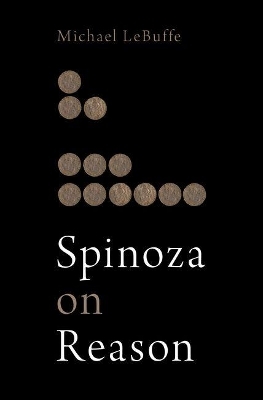
Spinoza on Reason
Seiten
2017
Oxford University Press Inc (Verlag)
978-0-19-084580-3 (ISBN)
Oxford University Press Inc (Verlag)
978-0-19-084580-3 (ISBN)
Michael LeBuffe explains claims about reason in Spinoza's metaphysics, theory of mind, ethics, and politics. He emphasizes the extent to which different claims build upon one another so contribute to the systematic coherence of Spinoza's philosophy.
In his work on metaphysics, Spinoza associates reasons with causes or explanations. He contends that there is a reason for whatever exists and whatever does not exist. In his account of the human mind, Spinoza makes reason a peculiarly powerful kind of idea and the only source of our knowledge of objects in experience. In his moral theory, Spinoza introduces dictates of reason, which are action-guiding prescriptions. In politics, Spinoza suggests that reason, with religion, motivates cooperation in society. Reason shapes Spinoza's philosophy, and central debates about Spinoza-including his place in the history of philosophy and in the European Enlightenment-turn upon our understanding of these claims.
Spinoza on Reason starts with striking claims in each of these areas, which Michael LeBuffe draws from Spinoza's two great works, the Ethics and the Theological Political Treatise. The book takes each characterization of reason on its own terms, explaining the claims and their historical context. While acknowledging the striking variety of reason's roles, LeBuffe emphasizes the extent to which these different doctrines build upon one another. The result is a rich understanding of the meaning and function of each claim and, in the book's conclusion, an overview of the contribution of reason to the systematic coherence of Spinoza's philosophy.
In his work on metaphysics, Spinoza associates reasons with causes or explanations. He contends that there is a reason for whatever exists and whatever does not exist. In his account of the human mind, Spinoza makes reason a peculiarly powerful kind of idea and the only source of our knowledge of objects in experience. In his moral theory, Spinoza introduces dictates of reason, which are action-guiding prescriptions. In politics, Spinoza suggests that reason, with religion, motivates cooperation in society. Reason shapes Spinoza's philosophy, and central debates about Spinoza-including his place in the history of philosophy and in the European Enlightenment-turn upon our understanding of these claims.
Spinoza on Reason starts with striking claims in each of these areas, which Michael LeBuffe draws from Spinoza's two great works, the Ethics and the Theological Political Treatise. The book takes each characterization of reason on its own terms, explaining the claims and their historical context. While acknowledging the striking variety of reason's roles, LeBuffe emphasizes the extent to which these different doctrines build upon one another. The result is a rich understanding of the meaning and function of each claim and, in the book's conclusion, an overview of the contribution of reason to the systematic coherence of Spinoza's philosophy.
Michael LeBuffe is Professor and Baier Chair in Early Modern Philosophy at the University of Otago. He is the author of From Bondage to Freedom: Spinoza on Human Excellence (OUP 2010).
Abbreviations
Preface
Introduction
Chapter One: Reason in the Metaphysics of Finite Individuals
Chapter Two: Reason as an Idea
Chapter Three: Practical Reason
Chapter Four: Reason and Miracles
Conclusion
Bibliography
| Erscheinungsdatum | 04.11.2017 |
|---|---|
| Verlagsort | New York |
| Sprache | englisch |
| Maße | 236 x 155 mm |
| Gewicht | 458 g |
| Themenwelt | Geisteswissenschaften ► Philosophie ► Ethik |
| Geisteswissenschaften ► Philosophie ► Metaphysik / Ontologie | |
| ISBN-10 | 0-19-084580-5 / 0190845805 |
| ISBN-13 | 978-0-19-084580-3 / 9780190845803 |
| Zustand | Neuware |
| Haben Sie eine Frage zum Produkt? |
Mehr entdecken
aus dem Bereich
aus dem Bereich


